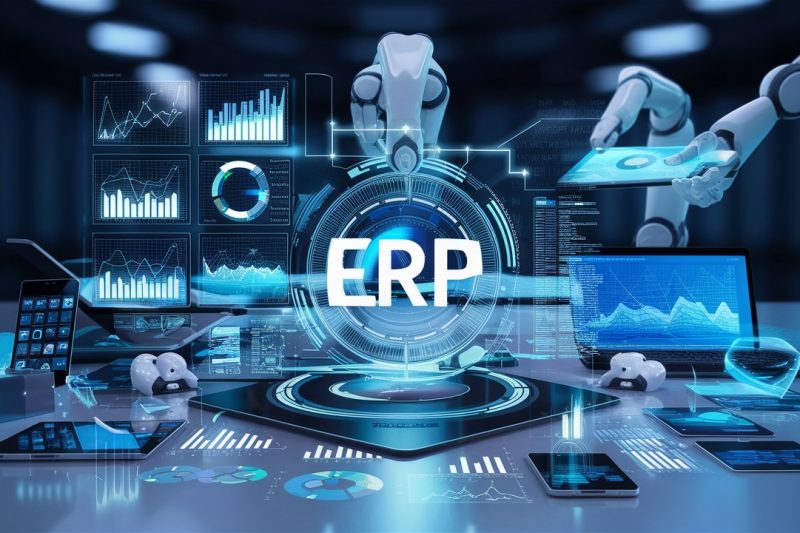ERP
Key Components of ERP Services
Integration:
One of the primary benefits of ERP services is the integration of disparate business processes. By consolidating information into a single database, ERP systems ensure that data is consistent, accurate, and accessible across the organization. This integration helps eliminate data silos and reduces the risk of errors that can occur when information is manually transferred between systems.
Automation:
ERP systems automate routine business processes, which reduces the time and effort required to perform them manually. Automation improves efficiency and frees up employees to focus on more strategic tasks. For example, an ERP system can automate financial reporting, order processing, inventory management, and payroll.
Real-time Data and Analytics:
ERP systems provide real-time visibility into operations. Managers can access up-to-date information and analytics to make informed decisions quickly. This real-time insight helps businesses respond promptly to market changes and operational issues.
Scalability and Flexibility:
Modern ERP solutions are scalable and can grow with the business. They can be customized to meet the specific needs of an organization and can be expanded to include new functionalities as the business evolves. This flexibility ensures that an ERP system remains relevant and useful over time.

Enterprise Resource Planning (ERP) services are critical for businesses looking to streamline their operations and improve efficiency. ERP systems integrate various functions across a company—such as finance, human resources, supply chain, manufacturing, services, procurement, and others—into a single, unified system. This integration facilitates better information flow, improved decision-making, and enhanced productivity.
Benefits of ERP Services
Improved Efficiency:
By integrating and automating business processes, ERP systems significantly improve operational efficiency. This leads to cost savings and allows businesses to do more with fewer resources.
Better Decision-Making:
With access to real-time data and comprehensive analytics, managers can make better-informed decisions. This improves strategic planning and helps the business stay competitive.
Enhanced Collaboration:
ERP systems foster better collaboration across departments by providing a unified platform where employees can share information and work together seamlessly.
Cost Savings:
The efficiencies gained from using an ERP system can lead to substantial cost savings. These savings come from reduced manual processes, better inventory management, and improved resource utilization.
Customer Satisfaction:
With better visibility into operations and improved process efficiency, businesses can provide better customer service. Faster order processing, accurate inventory management, and timely delivery contribute to higher customer satisfaction.
Challenges in ERP Implementation
Despite their many benefits, implementing an ERP system can be challenging. It requires a significant investment of time and resources, and the process can be complex. Key challenges include:
Cost:
The initial cost of ERP implementation can be high. This includes software licenses, hardware, training, and consulting fees.
Change Management:
Moving to an ERP system often requires significant changes in business processes. Employees need to be trained on the new system, and there may be resistance to change.
Customization:
Customizing an ERP system to meet specific business needs can be complex and time-consuming. It requires a clear understanding of the business processes and careful planning.
Data Migration:
Migrating data from legacy systems to an ERP system can be challenging. It requires careful planning to ensure data integrity and accuracy.
Conclusion
ERP services are invaluable for businesses aiming to enhance their operational efficiency and strategic decision-making. Despite the challenges involved in implementation, the benefits of integrated processes, real-time data, and automation make ERP systems a worthwhile investment. By carefully planning and managing the implementation process, businesses can leverage ERP systems to achieve significant improvements in performance and competitiveness.
